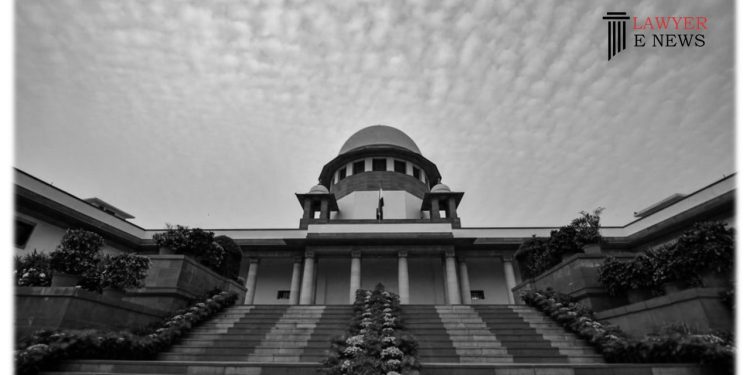Police officers aren’t required to do moral policing or ask for favours- Supreme Court

The Supreme Court upheld a disciplinary authority’s decision to terminate a CISF constable’s employment and ruled that police officers are not compelled to engage in moral policing or solicit material or physical favours.
The Gujarat High Court’s verdict of December 16, 2014, granting CISF constable Santosh Kumar Pandey’s plea and ordering his reinstatement in service with 50% back pay retroactive to the date of his removal, was overturned by a bench of Justices Sanjiv Khanna and J K Maheshwari.
In a document dated October 28, 2001, Pandey, a policeman with the Central Industrial Security Force (CISF), was accused of wrongdoing while working in the Greenbelt Area of the IPCL Township in Vadodara, Gujarat.
The charge sheet claims that on the nights of October 26 and 27, 2001, Pandey was assigned to night duty as a constable at the Greenbelt Area of the IPCL Township in Vadodara, Gujarat. When a man named Mahesh B. Chaudhry and his fiance rode by on a motorcycle and stopped in a nearby corner, Pandey approached them and asked them questions.
Allegations state that Pandey used the circumstance and informed Chaudhry that he wanted to spend some time with his fiance. The charge document states that when Chaudhry objected and wouldn’t consent, Pandey asked him for a gift. Chaudhry reportedly handed him the watch he was wearing at the time. After Chaudhary complained the next day, Pandey was the subject of an investigation and had his employment terminated as a result.
The court declared that, in its view, both the facts and the law are undermined by the High Court’s reasoning.
“With regard to the issue of punishment proportionality, we must note that the facts in the current case are shocking and upsetting. Santosh Kumar Pandey, the first respondent, is not a police official, and even police officers are not compelled to practise moral policing or solicit pecuniary or physical favours. It declared.
According to the facts and the law, the Court accepted the CISF’s appeal and vacated the decision of the Gujarat High Court.
“As a result, the Special Civil Application submitted by Respondent No. 1 Santosh Kumar Pandey to the High Court would be denied. The order of dismissal from service issued by the disciplinary authority is upheld. “ It declared.
The bench noted that it has concerns with the logic provided in the challenged judgment’s paragraphs because it disregards and improperly applies judicial review law.
Unless the court determines that the findings recorded are based on no evidence, are perverse, or are legally untenable in the sense that they do not pass muster with the Wednesbury principles, judicial review is not equivalent to adjudication of the case on the merits, and adequacy or inadequacy of evidence.
When disciplinary action is contested, the writ court is primarily concerned with examining the decision-making process. This requires satisfaction that the competent authorities have conducted their investigation in accordance with the prescribed procedure, have properly applied their minds to the evidence and material submitted, without giving unwarranted weight to unnecessary factors, and have considered all relevant factors.
CISF AND OTHERS
VS
SANTOSH KUMAR PANDEY





